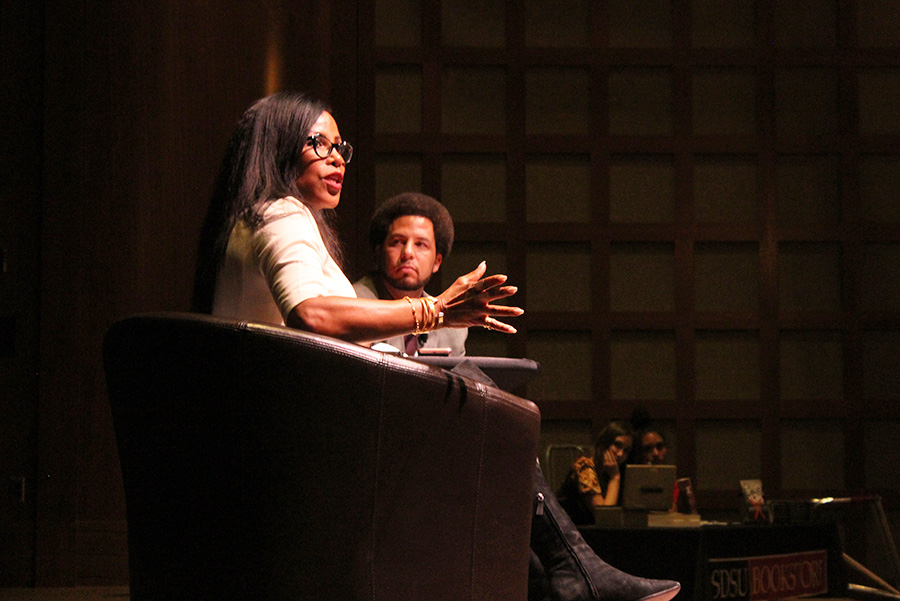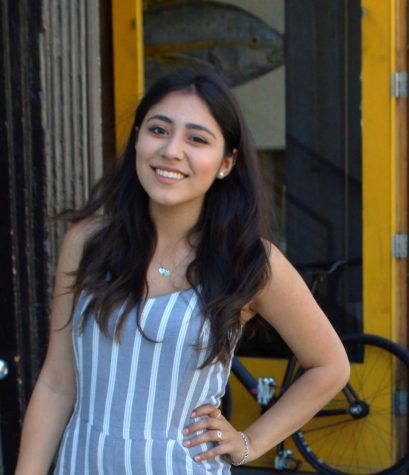On Sept. 14, Ilyasah Shabazz, daughter of activist Malcolm X, visited San Diego State’s theater in the Conrad Prebys Aztec Student Union to talk to students about activism and issues in today’s society, such as racism and stereotypes.
The event began with a question session moderated by Dr. J. Luke Wood, director of the Community College Leadership program in SDSU’s College of Education.
Shabazz said because she was very young when her father was assassinated, she was raised by her mother in a way that taught her to acknowledge important women in their lives and in their country.
“She raised us with the idea that all of us are brothers and sisters under the same family of God,” she said.
Shabazz continued to recognize how growing up with a single mother influenced her persona.
“When you teach a man, you teach a community,” Shabazz said, quoting her father. “When you teach a woman, you raise a nation.”
When asked about the relationship between Malcolm X and Dr. Martin Luther King, Shabazz said they were both fighting for the same cause, but the media portrayed them as adversaries. She said her mother and King’s wife were good friends.
“What I do know is that they respected one another,” Shabazz said. “The beauty about Malcolm is that as he learned, he shared. And toward the end of his life, they were working toward working together because they understood the importance about fighting injustice.”
Referencing a famous picture of Malcolm X with a gun, Shabazz explained that her family had been attacked and after calling the police and not receiving help, “(My father) was ready to protect his wife and children by any means necessary.”
After being asked about the recent killings of African-Americans throughout the country, Shabazz mentioned her nephew Malcolm, who was assassinated in Mexico after visiting to help Afro-Latinos.
“At some point, we have to say enough is enough,” she said. “It’s not a thing of black and white but about right and wrong and recognizing that.”
Shabazz said people who don’t understand Black Lives Matter are misinformed or not educated enough on it, and the educational curriculum should be modified to teach the struggles of Africans.
“When we talk about Black Lives Matter, it’s about the people who were taken to be enslaved for a long time,” she said. “For so long, we were told that black people didn’t have a history and that their history began with slavery, when in fact they cultivated on the land of milk and honey that each of us have the opportunity to call our home.”
Political science sophomore Tiana Loving said she was most excited about the strong message she knew Shabazz was going to have for minorities on campus.
“I knew she was going to stress the idea of education and just the idea of inclusivity and unity,” Loving said.
Business management freshman Alexya See said it was a blessing to hear Shabazz speak.
“I feel like I can do more to help move us toward the goal, and the ultimate goal is just equality,” See said.
To the audience, Shabazz said to live in the moment, to not regret, to learn and to ask.
“Don’t feel that you are not worthy because we’re here to learn about life, and we’re here to discover our power, our purpose and make sure that we live these really meaningful lives.








